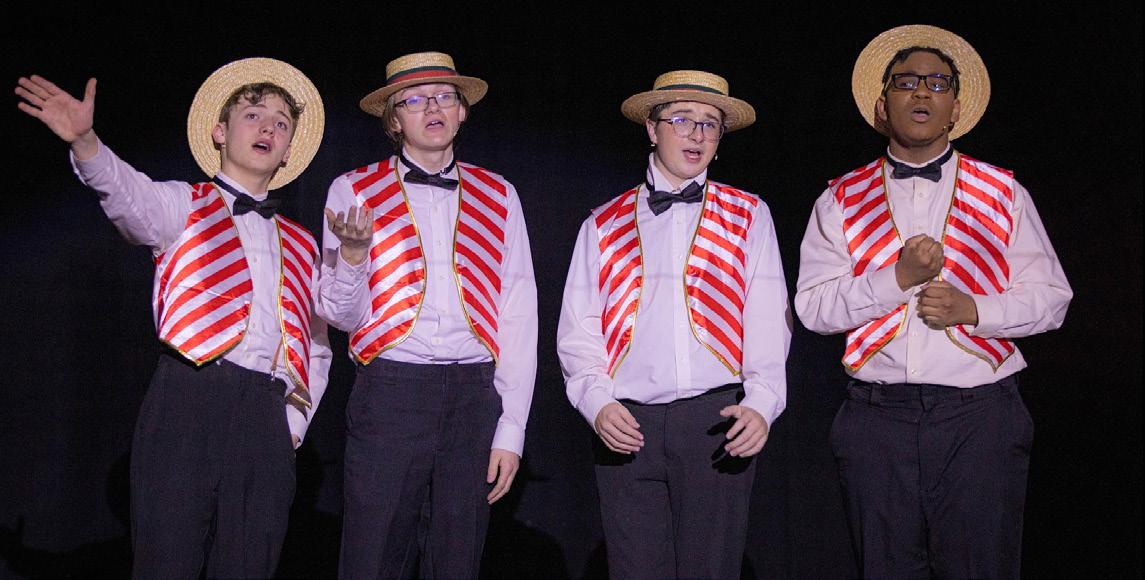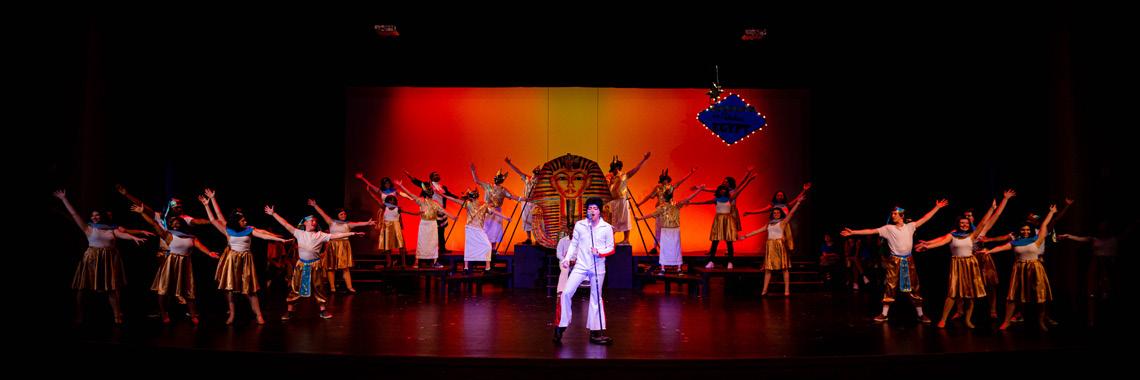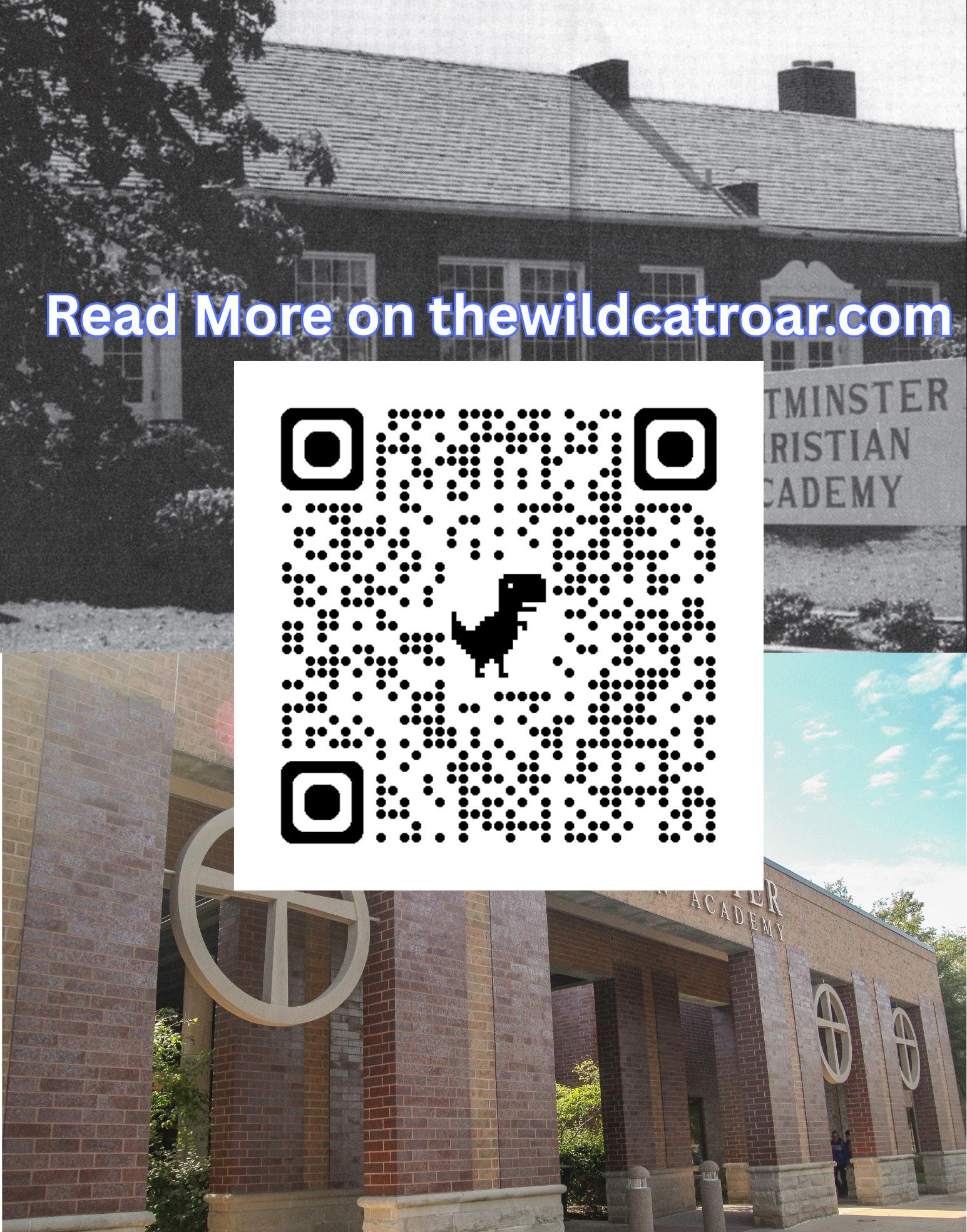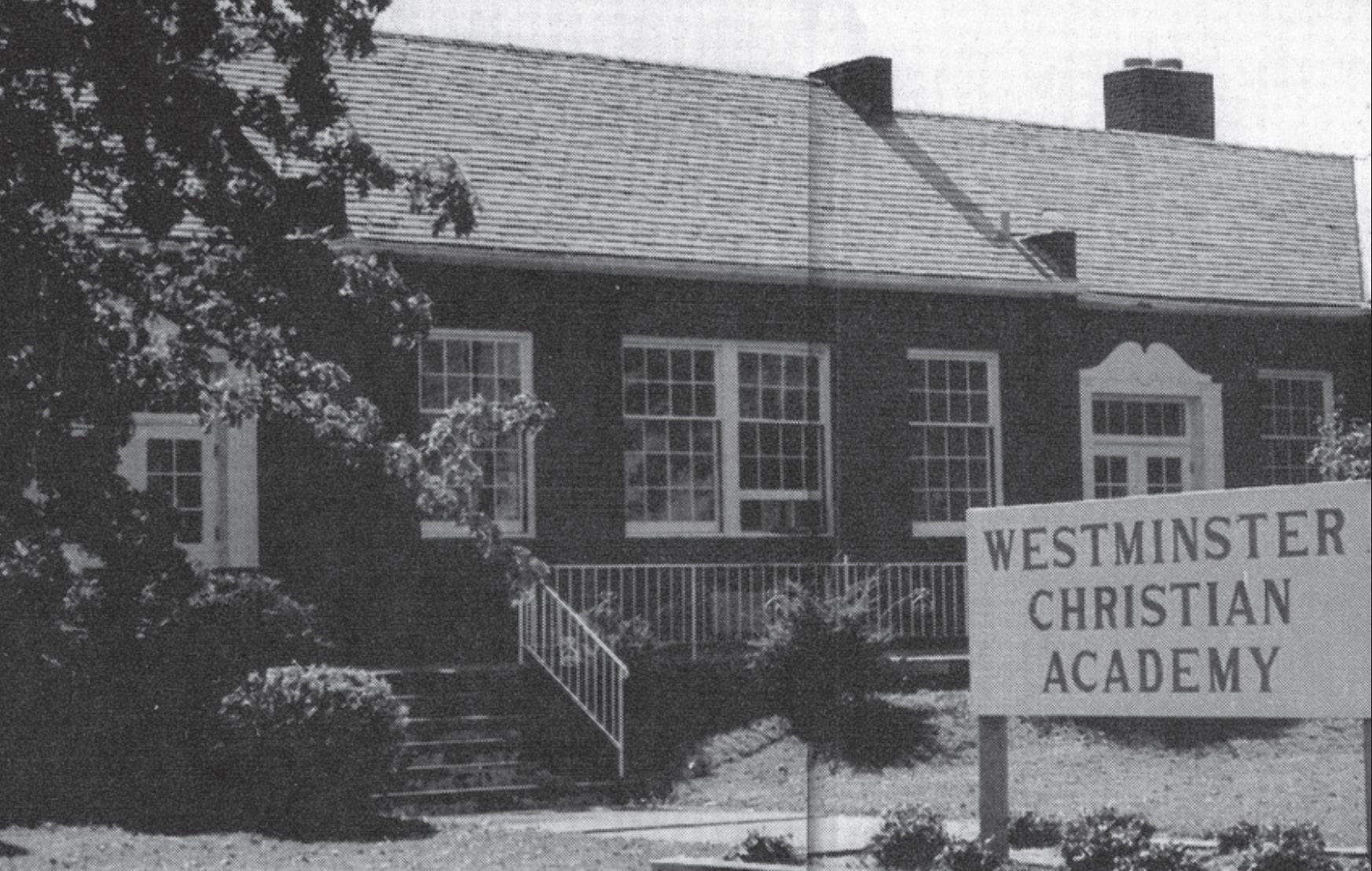
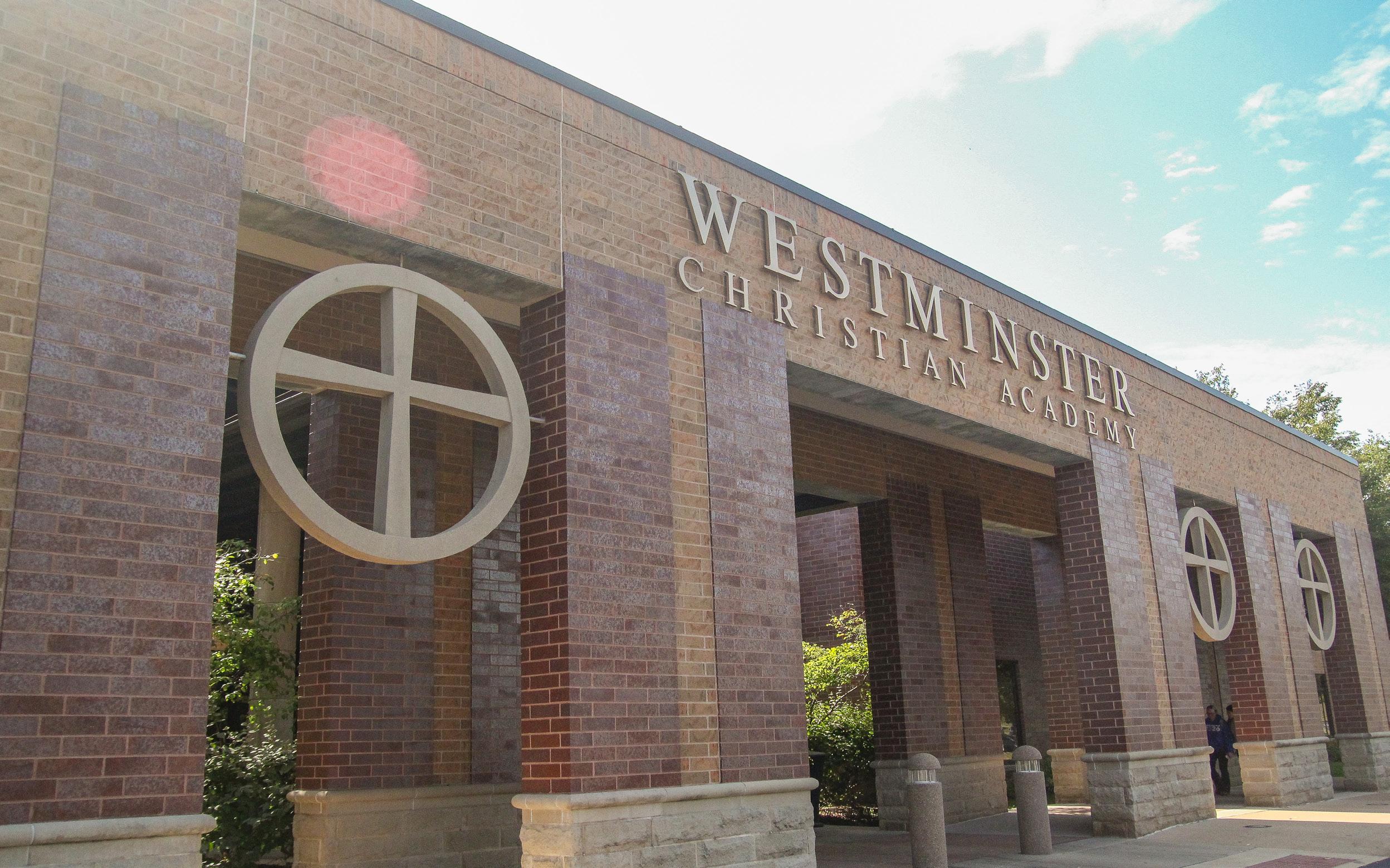



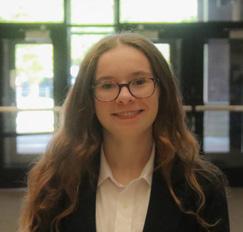
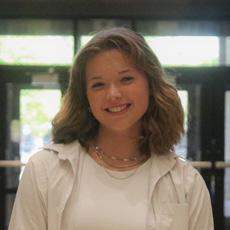
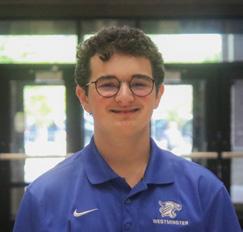
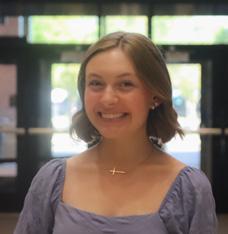
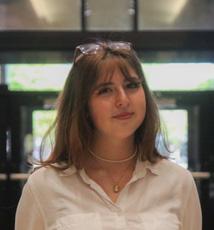

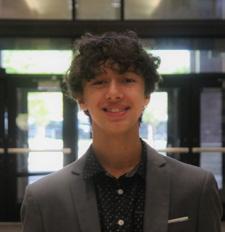
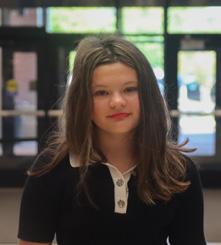
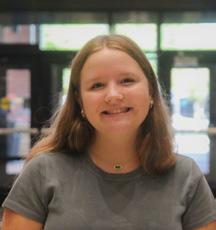
BELLA THIES
EDITOR-IN-CHEIF, SENIOR
MARY HATHAWAY
DESIGN EDITOR, JUNIOR
CUTLER FRICKE
SENIOR STAFF WRITER, JUNIOR
JOSIE MOSELY
STAFF WRITER, SENIOR
OPHELIA FOLKEMER
STAFF WRITER, JUNIOR
JACK OVERBY
STAFF WRITER, JUNIOR
JAMESON ROAM
STAFF WRITER, JUNIOR
ALLY MOSELER
STAFF WRITER, SOPHOMORE
ADA SCHMIDT
STAFF WRITER, FRESHMEN
For the past 50 years, the leaders of Westminster Christian Academy have poured their hearts and souls into the flourishing of this school and looking at the academy today, their efforts are very evident. Westminster has grown exponentially from its meager beginnings into the monument to the faithfulness of Christ it is today.
What started as the small dream of a few families who wanted to build a better Christian education system has now become one of the most prevalent private schools in the St. Louis area. Now over 1000 students attend Westminster each year and have the opportunity to engage in a Christian community built on a commitment to Christ and the teachings of the Gospel.
In light of the school’s 50th year, I am proud to present 800NEWS’s 50th Anniversary Issue. In this issue, we cover the evolution of Westminster through the years as well as the development of the diverse range of opportunities for students
In His Name,
to explore their interests that the academy has incorporated over the course of its long history.
While the school may have been founded as a small institution, the heartfelt sacrifices of countless members of our community have led to the foundation of a variety of extracurricular programs, including our very own student-run publication, The Wildcat Roar.
Furthermore, we will also provide a look into how the traditions of Westminster have transformed over time and highlight specific members of the Westminster community who have had a huge impact on the school’s growth.
As the school celebrates this monumental anniversary, it is important to recognize how the school became the well-reputed institution today and how the values held by the community since its founding will continue to shape Westminster’s future.
800 News and Bella Thies, Editor-In-Chief
Contact us at 800news@wcastl.org if you have any ideas, questions, or concerns.


From labs filled with microscopes to campus-wide changes, Dr. Andrew Shaw has seen it all. Since 1977, he has been a steady presence in the science wing, watching Westminster grow and change. His story is one of faith, learning, and legacy as a science teacher. His teaching has changed the lives of countless students, sending them down paths deeply inspired by his Christ-driven lectures.
As WCA celebrates its 50th anniversary, Dr. Shaw reflects on his time as both a teacher and parent, sharing how he, in turn, has shaped generations of students. Dr. Shaw has been at Westminster long enough to witness both small and sweeping changes. He has seen the school expand, traditions evolve, and students graduate into the world. But even as buildings and faces have changed, he believes the school’s mission has remained consistent. He speaks on his adoration for Westminster’s dedication to student encouragement, academic motivation, and strong christian values.
On the move to a new building, Shaw reflected on the school’s deeper purpose. He says, “Recognize what’s really important isn’t the whistles and bells” he said. “It’s the philosophy—the integration of faith in learning.” To him, this commitment has been the school’s anchor across decades of growth. In Shaw’s eyes, Westminster’s very foundation is built on the school’s love and dedication towards being pleasing in the eyes of the Lord. It is not just about the stellar academics, but a God-centered approach to them.
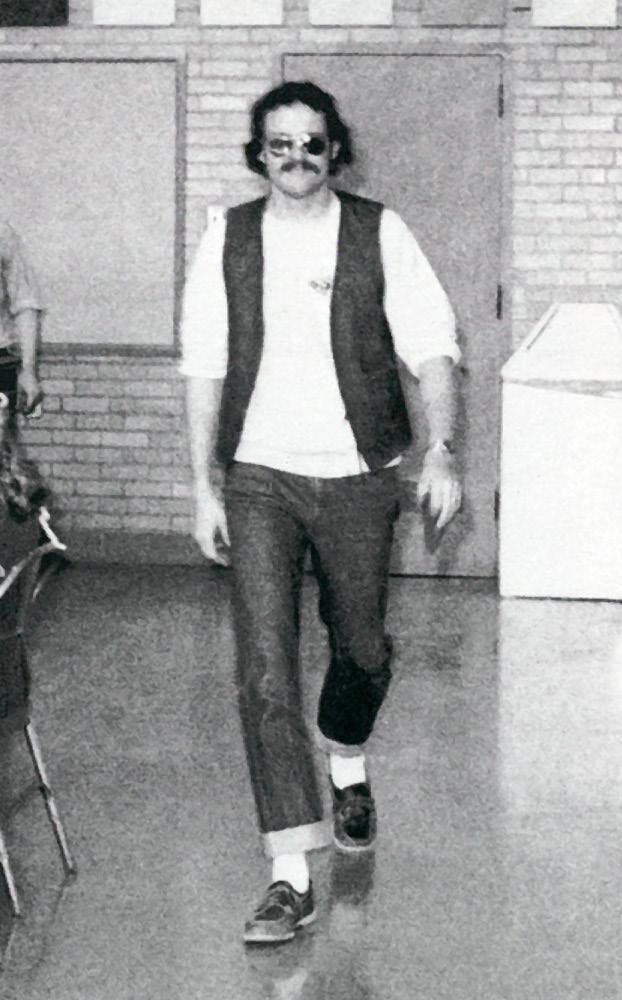
For Shaw, Westminster is more than just a workplace. His own children attended the school, allowing him to view the community through both professional and personal eyes. This gave him a unique appreciation for the way the school influences its students.
Shaw said, “I know firsthand what it means to know who was speaking into my children’s lives–What they were experiencing, what they were going through, and

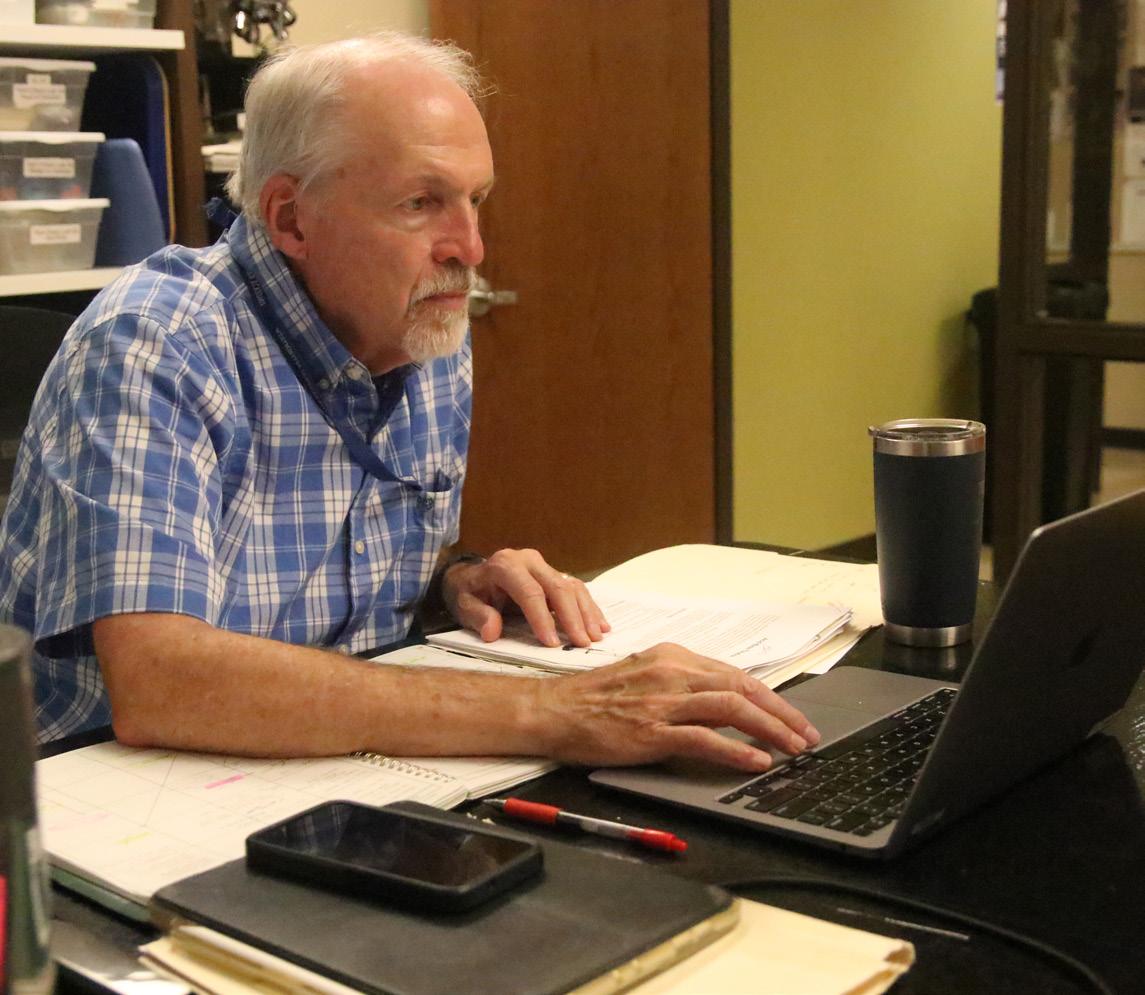
where they had needs that the school was exceptional in being able to meet.” For Shaw, WCA was not only his classroom but also a place where his family could thrive.
As a science teacher, Shaw has found joy in connecting the natural world to his faith. His lessons are designed not only to teach the facts of natural science, but also to point students toward greater truths. This integration of science shaped his career and his classroom.
“I love seeing how the truth of God’s word and the truth of God’s world—general and special revelation—fit together so extraordinarily,” Shaw said. For him, teaching is not just about experiments and labs but about helping students see God’s hand in every discovery.
As WCA marks its 50th year, Shaw hopes students will carry a lasting lesson from his classroom: “I hope [my students] take away that because God’s word is God’s word, it is always going to be absolutely authoritative and reliable and relevant and worth basing your life on.” His message and motivation echo the mission of Westminster itself: academic enrichment, student ambition, and strong christian faith.
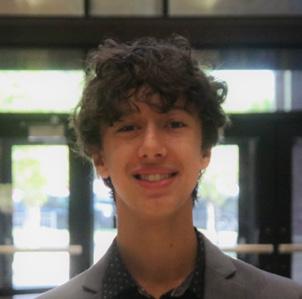
Greatness requires grit, and success requires steadfastness. A dive into the history of Westminster Christian Academy only reveals the unwavering fidelity and tenacious drive the academy has continued to hold in high regard throughout the years.
Throughout its five decades, Westminster has remained true to its founding principles and aims. Its leaders had clear devotion to God and let Him lead them through unbelievable leaps of faith to get the school to the place it has become.
Originally, Westminster did not have all the luxurious amenities that it has today. At the beginning, the school offered no extracurriculars and operated with a very low budget for technology. However, the early WCA parents were dedicated to giving their children a Christian education, even if it
meant giving up all those other typical aspects of high school.
In a documentary produced by Westminster Communications, Jim Marsh, the previous headmaster of Westminster Christian Academy from 1985 to 2013, highlights the sacrifice that was made to get WCA on its feet: “The parents back in those days made that kind of a commitment. It was to a Christian school. This is the kind of foundation they wanted for their kids, so they were willing to sacrifice all of the flashy kinds of things that a high school experience could offer.”
The first campus was located just off Ladue Road. Its purchase required an immense amount of faith and sacrifice on behalf of those invested in the school. Marsh explains, “In order to get that loan, board members actually put up their homes as collateral.”
The board placing their entire property on the line was not the only act of generosity within the community. All WCA families had to participate in the Westminster Shares Program, which required a no-interest loan of $2,000 that would be paid off by the time their last kid graduated. This level of commitment displays the Westminster community’s dedication to the flourishing of the school, a quality Christian education, and acts of service. It also proves the trust they had that God would provide for them and guide them through that enormous financial undertaking.
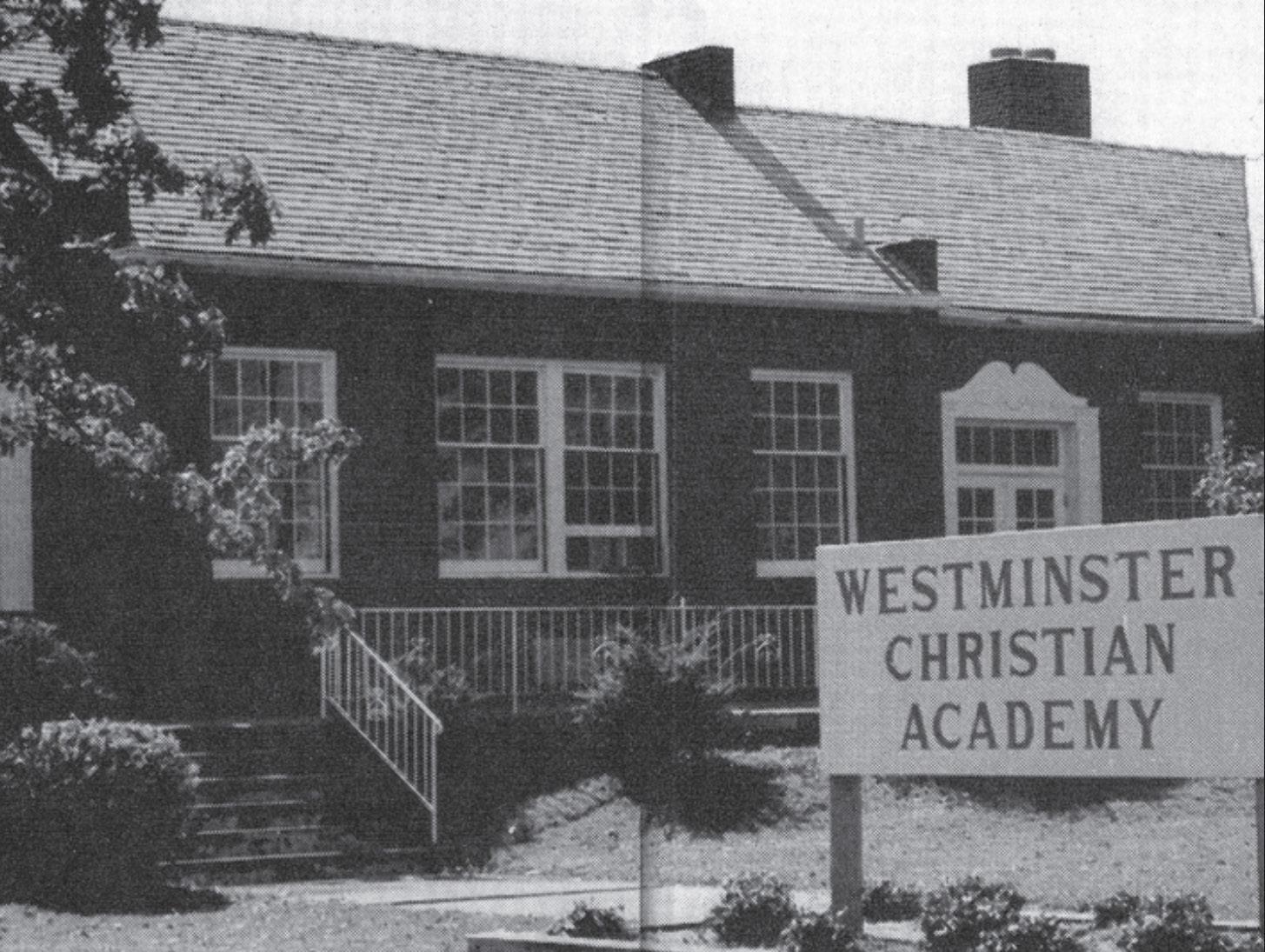
Marsh continues, “This was a school that was really serious about being a Christian school in all that that means, but also high quality.”
While Westminster had held true to its original Christian values, it had actually grown a lot in many other ways by the time Jim Marsh was invited to be its headmaster.
Angela Schmidt, alumnus of the class of ‘97, speaks to WCA’s values while she attended the academy. She describes, “I also really loved the aspects of integrating
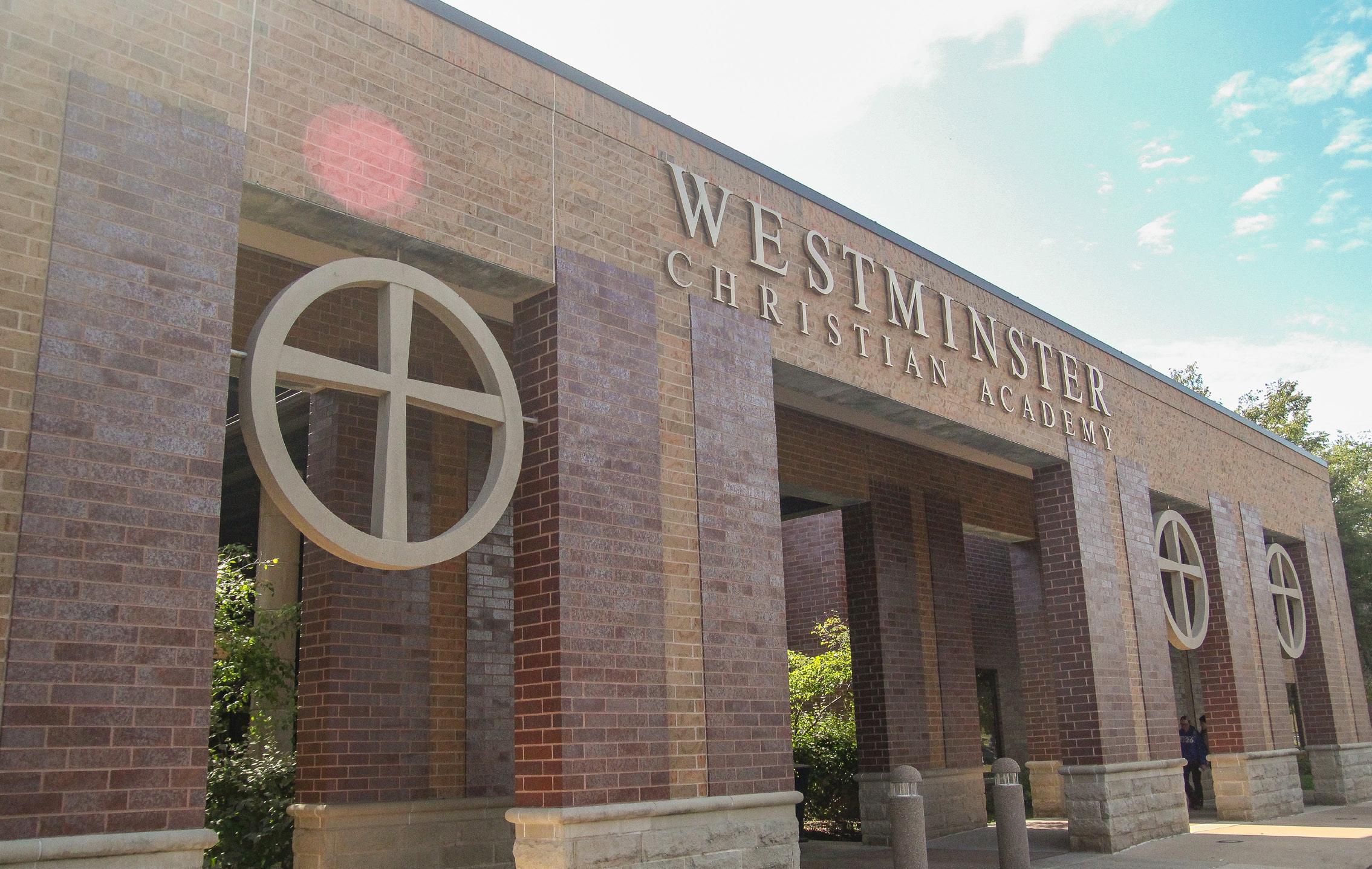
your faith and your worldview with education,” states Angela Schmidt, class of ‘97, describing WCA’s values when she attended the academy.
One thing that caused Westminster to stand out from neighboring schools was its willingness to involve its Christian values in every part of the high school experience. This allowed students to feel comfortable sharing their beliefs, no matter the circumstance, knowing that their school was a place of safety rather than separation.
Schmidt expresses, “You can find what you are super gifted in and what God is calling you to, and you can pursue that. […] I feel like that was true then, and I think that’s true now. It really prepares people well for pursuing what they feel like they’re supposed to do in the world after high school.”
Westminster is great at preparing students to enter the adult world after graduation, whether that be college, travel, or anything else they feel called to do. The school provides so much variety in its classes, courses, and extracurriculars so its students have the
opportunity to experience a plethora of career paths before deciding definitively what they want to pursue after graduation.
Schmidt also recalls the lasting impact that head of school created in her mind, recalling, “When I was here, Jim Marsh was the headmaster, and […] there was just so much integrity and a real strength of character.”
Jim Marsh led the school with bravery, honesty, and incredible faith, and that clearly played out in the way the school operated and in the way the students treated each other. He’s an excellent example of displaying faith, even in situations that seemed hopeless or weren’t inherently religious, like raising money or purchasing a building.
Marsh has been a huge part of growing WCA into what it is today, and it’s only fair that we continue his legacy by living in Christ and displaying His kindness and tenacity in everything we do. As Westminster enters its next fifty years, there’s no doubt that it will continue to hold true to its deeply embedded mission and vision.
Many teachers and staff members have faithfully contributed to the growth and expansion of Westminster Christian Academy over the course of its decades long history. However one family in particular has had a huge impact on the Westminster community. The Lewis family has affected the Westminster community greatly through the careers of both Mrs. Lizzie Vogel, one of Westminster’s most beloved art teachers, and her mother, Mrs. Florence Lewis. Both women have made many great contributions to Westminster, including starting the school’s summer seminar program and Spirit Week!
While Mrs. Vogel is a well-known face within the Westminster community today; fewer current students are aware that her mother also taught at Westminster and helped the school get on its feet.
Mrs. Lewis or as her students called her “Madame Lewis”, was a passionate teacher who loved her students and enjoyed educating her students on the intricacies of the French language. She taught French, Latin, and Bible during her tenure at Westminster and put her heart into every lesson she gave. When she was not teaching a class, she could al-
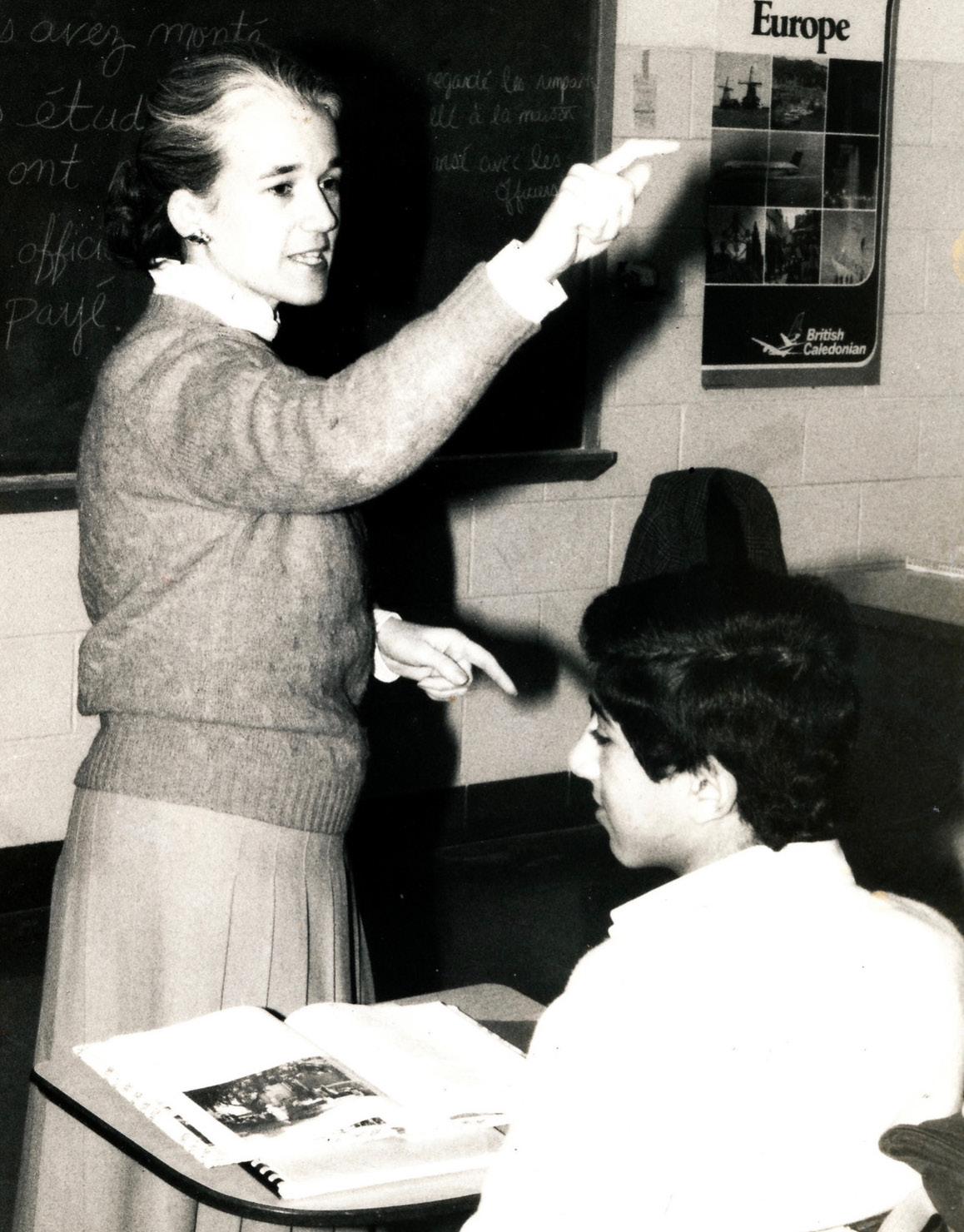
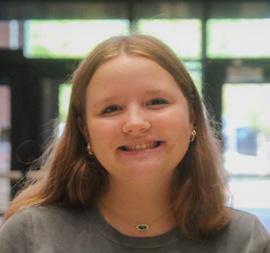
ways be found helping or chatting with her students. Mrs. Vogel can attest to just how profound her mother’s impact was:
“She had a love for the students, and for what she taught, that’s something that everyone loved about her.”
Mr. Haas, a calculus teacher well acquainted with Mrs. Lew, also spoke to her dedication to WCA:
“Mrs. Lewis was an amazing leader, she had great school spirit and she helped the students get excited about our school! She loved teaching her students and was always very energetic.”
However, Mrs. Lewis did more than just connect with her students, she also founded many of the programs and events Westminster offers today. Not only did she start the foreign language program with the introduction of Latin and French classes, but introduced school spirit events such as the homecoming carnival and spirit week as well.
When Mrs. Lewis first started the tradition of the homecoming carnival, it was referred to as the junior carnival because the junior class ran the event and worked the various booths. The booth that Madame Lewis ran was called “Cafe de France”, and through that booth she allowed her French students to run a cafe with traditional French treats to promote French culture and cuisine.
In 1984, Mrs. Lewis expanded her list of contributions to Westminster by taking the lead of the hospitality committee. Mrs. Vogel speaks on how her mom made a special impact by designing an engaging fundraiser for WCA:
“My mom made a special fundraiser called: Light the Way. It was to raise money to rewire and light the hallway! She was very creative and clever in that way.”
Thanks to her clever innovation, Mrs. Lewis was able to help the school raise enough money to completely rewire and light the hallways of the old campus. No matter where she went or what she did, she was always open and generous to anyone who needed help. Even though she has sadly passed away, her loving nature left an indelible mark on the Westminster community, and serves as an example of how the love of Christ can be displayed in every aspect of one’s life.
Every Wednesday morning, the sound of voices fills the arena at Westminster Academy as over 1,000 students, faculty, and staff flood into the room to join together in worship of the Lord. Ever since Westminster’s founding, weekly chapels have been a tradition that not only aim to deepen the spiritual lives of the students, but build a wider sense of unity within the community as well. Each week, a new speaker addresses the student body and shares their testimony with the school. Whether a teacher, student, or even a follower of Christ from a different community shares their message, every speaker introduces a new point of view or example of God’s faithfulness.
Westminster has made weekly chapels a priority ever since the school’s founding. According to David Ottolini, Director of Spiritual Life at Westminster:
“So since the beginning of the school, they’ve always had a chapel. I was talking to Mr. Hall and he recalled sitting in an open space or a hallway area [...] on the floor during events. So from the very beginning of the school, chapel was a part of the fabric of Westminster.”
Chapel gives students a chance to escape from the chaos of high school life and reconnect to God in an attitude of worship. It has helped students refocus themselves and has even allowed them a chance to directly participate in worship as student-led programs contribute to chapel in a variety of ways. From set up and take down to the messages and worship themselves, the school has allowed students to become involved in every step of the process.
The introduction of more advanced technology has added to the chapel experiences, allowing members of the Westminster community to tune in from anywhere. Han Kim, the director of the chapel band and broadcast teacher comments on the evolution of technology usage in chapel over time: “The fundamental technology to support the chapel doesn’t change often, but over the years it has changed dramatically in different steps. It is clear that technological advancements have added to the chapel experience over the years, but the purpose and goal remained steadfast.”
In order for the chapels to resonate more with people, Westminster’s spiritual leadership has sought to include a variety of speakers from different walks of life with whom the diverse student body could connect. Ottolini recalls,
“I think in the beginning, it was more of a devotion teaching, like I mentioned before, people sitting on the floor and someone just talking. So it was a more small groupish feel. [...] I’ve also tried to shift the rhythms of the chapel, so splitting the chapel into groups, those things are different than it was originally, just one chapel every week. With the
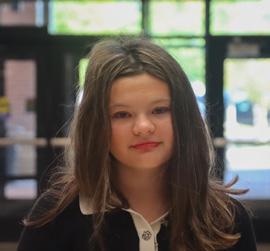
addition of more modern technology the expectations of chapel have changed [...] So the beauty is that we’re one community, so we should have a chapel altogether, but then also it matters how you talk on different levels.”
Westminster’s community includes teachers and students from all ages and walks of life. Therefore, Westminster has invited several student speakers in addition to the adult speakers who the students can relate to on a more meaningful level. Ottolini explains the importance of having student speakers in the chapel:
“Students are all very very similar in what they are going through and share a lot of the same interests [as students from older generations], but the way they go through life has changed. So the message has been the same, but the way you deliver it is different. [...] I think the expectations are different now. [...] It’s just different because we are trying to empower and train students to lead students.”
As times change, so do people’s expectations of what a chapel should look like, but despite the changes it has undergone over the course of the school’s history, the goal has always been to glorify God. During the 50th anniversary celebration, we should enjoy and cherish the opportunity we have to worship God as a school community and how this has been consistent for fifty years.
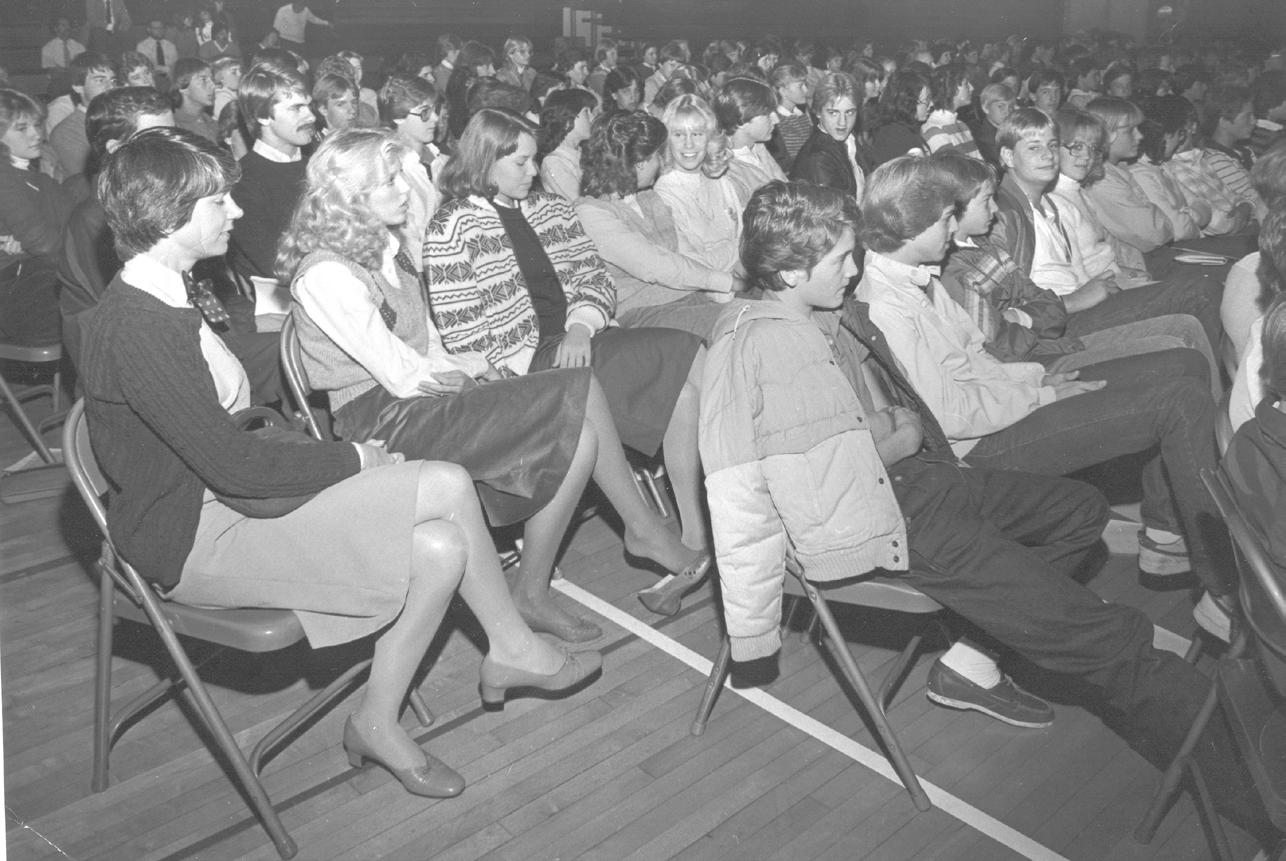
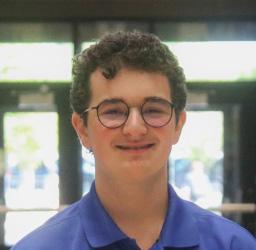
Many people who are actively engaged with Westminster Christian Academy are familiar with the frequent visits of exchange students from various countries that come to spend time in the United States learning English and engaging in the new culture. Additionally, members of the community may also be familiar with the summer seminar trips to different countries including South Korea and Spain. Yet the actual history of Westminster’s relationships with its partner schools still remains a mystery to most of the community. Dani Butler, Head of Student Development, has played an important role in setting up and going through with Westminster’s Global Relationships throughout the school’s history. In a brief interview Butler reveals the purpose behind the partnerships:
“The Global Partnerships, which means that Westminster reaches out to other Christian schools outside the United States, and establishes partnerships with them. Also, Westminster helps the school establish, so the school does not exist yet, but they are getting ready to start, and we support, help, and provide resources for them.”
The first school that WCA helped to establish was Saemmul Christian Academy in South Korea. The founder of Saemmul visited Westminster in 2008 and after a year in which faculty from Westminster trained faculty from Saemmul Westminster agreed to go forward with the relationship and help get the school up and running. The basis of the connection between the two schools was their shared dedication to a rigorous curriculum and biblical principles. This bond with Saemmul has only grown stronger over the years and inspired WCA to continue building more global relationships with other schools around the world. Butler additionally commented on another international connection Westminster made with a school in Spain:
“After that, in 2012 we started to partner with Alpha and Omega in Spain. That school was already established for a long time, but they were looking for a partnership relationship with a United States Christian school [...] So we went there, visited, and they came to visit before we started [...] We were in agreement that our vision and mission and their vision and mission aligned with each other.”
Similarly to the process that took place with Saemmul Christian Academy, both WCA and Alpha and Omega visited each other’s campuses and found that their biblical beliefs and curriculum matched. An important change that came from Westminster’s relationship with Alpha and Omega was the beginning of an international student exchange program. For about 14 years, the students from Alpha and Omega traveled to America to visit Westminster and vice versa, however the schools recently switched the exchange program to every other year. These exchanges also occur with students from South Korea as well as students from Japan, and soon they will also happen between Westminster and their newest partner, a school in France. After Alpha and Omega of Spain the next partnership formed was African Vision of Hope. Butler commented on Westminster’s relationship with African Vision of Hope along with the effects that WCA has left:
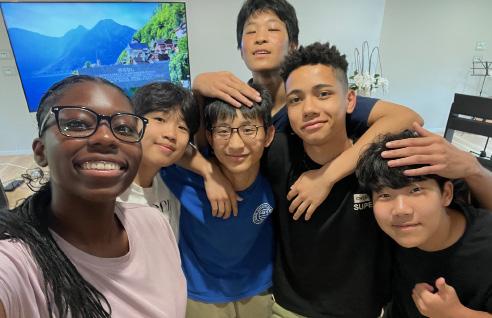
“We had African Vision of Hope start
in 2017. They had about 3000 students and now it is 6000, so they doubled it. They had one campus, now they have three campuses. What we did was the same thing that we did with Saemmul. They sent their faculty members here for a long period of time, 2 or 3 weeks, and then we taught everything to them.”
Westminster has been extremely helpful for the growth of African Vision of Hope among other schools who they partner with. The love of God truly shines in international exchanges between believers such as these, and these partnerships truly do have significance which is why Westminster is hoping to continue to foster even more partnerships in the years to come. Butler commented on the want for more global relationships:
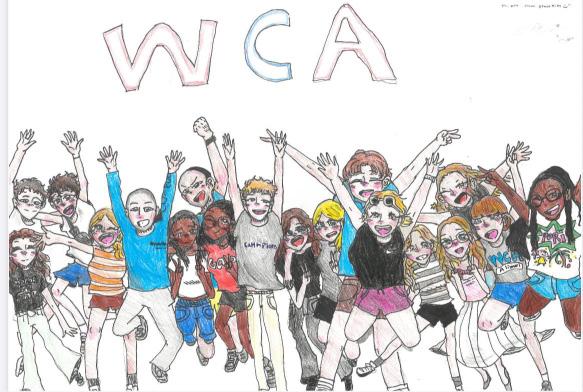
“We don’t have any schools in Central America or South America, but we would love to have a partner school there. We would love to extend our global partnerships”
The desire within Westminster to build more long-term relationships with schools from all over the world will only grow as more students become involved in the programs. While a good portion of kids go on the global seminar trips and enjoy them, the relationships need to build deeper than just visiting, so students should attempt to build further and form relationships that could last a lifetime. In fact, many students have truly connected with the families that hosted them during the seminars. Ava Fichter, Senior, has been on both the Spain trip along with the Korea trip. She explained her experiences with the students on both trips:
“For Korea, I was blessed to be welcomed into my host family for a week and developed friendships and relationships with both of my host sisters throughout our week there. It truly felt as though I gained another family. For Spain, I got to experience the daily life of an average high school student at Alfa y Omega. We were brought to their favorite candy store, their homes, their favorite stores, and we threw a picnic party on the beach to celebrate our new friendship.”
Not only are the friendships students forge important to their personal gowth as people, but they also help open the eyes of students to a much larger world that needs to see the Lord. In connecting with students from other countries, those who go on the trips have a chance to explore the wider world and be exposed to different cultural norms. Butler explains Westminster’s plans for the Global relations Program in the future:
“I would love for our students to be more aware. Not a lot of students know we have this amazing program. That’s why I would like to talk about it more in chapel. I would like to involve more students in those trips in the summer to different countries. So they can be motivated and widen their horizons beyond the United States.”
Overall these global partnerships are a great way that the Lord works from country to country around the world in order to make his word more accessible. Forming deeper relationships is a great way for students to become more aware of God’s great creation and reflect Jesus like they are called to do. As Westminster continues to grow past its 50 year birthdate its effects on schools around the world and the connections built with students of those schools will continue to become more and more prevalent.

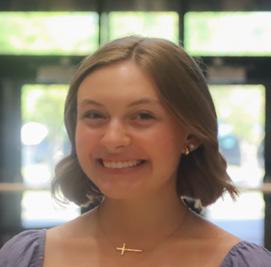
For years, the Westminster Wildcat has delighted crowds at sporting events, community gatherings, and even Spirit Week. It has become the true face of Westminster and an iconic picture of school spirit. But how did this wildcat get its start? How was the wildcat chosen to be Westminster’s mascot?
Tim Hall, Class of 1980 and current science teacher, remembers the early conversations of this mascot search. While there were many ideas thrown out, the three final options were the Knights, the Eagles and the Wildcats. After a vote by the classes, the Westminster Wildcat was born.
While the mascot of the Wildcat has remained consistent for 50 years, the Wildcat logo has experienced change over time. This year, homecoming swag featured the original “happy cat” logo, paying tribute to the long history of Westminster. This mascot continues to evolve even now. According to Ashley Woodall, Director of Student Life, STUCO is planning to finally give the mascot an official name after 50 years. What name would you give the wild-

In the early days of Westminster Christian Academy, designing the school’s look was of high importance to the student body. One of the harder decisions to make was over WCA’s school colors. Contrary to popular belief, Westminster’s classic blue and white came to fruition in the most simple and surprising way.

TheBlueCrewSwagBoothAtCarnivalRepresentsTheSchool’sBlueand WhiteTheme
The first problem was that Westminster did not seem to fit the colors that were popular in the 70s. Purple and gold? Yech! Green and yellow? No thank you. Luckily, Kent Kehr, Class of 1978, was a part of this daunting decision.
According to Kehr, they had the first full WCA class sit down with a couple of board members and teachers to design Westminster’s look. When the topic of school colors came about, Kehr was the first to push for blue and white: “I had a letter jacket from Ladue that I had gotten because I played water polo there, and I didn’t want to buy another one.”
Eventually, Kent Kehr talked the rest of the team into it, and the blue and white design was born. These vibrant colors continue to set Westminster apart, catching the attention of everyone who has seen them over the years.

Throughout the years, Westminster has been known for their unique, award-winning theater program. The productions defy the expectations of high school theater, and audience members are consistently blown away by the spectacles put on each semester. However, it took a lot of change to get WCA theater to become the phenomenon it is today.
WCA theater began on a simple stage of the old campus. There were students in choir, dance, and drama classes, but there was not yet a school musical. Eventually, they realized that as a large school, it was important for Westminster to put on performances to showcase the talents of the classes. In 1984, You’re a Good Man, Charlie Brown was the first ever Westminster production. With a cast of only six actors, it was an immediate success, and WCA theatre was born.
After You’re a Good Man, Charlie Brown, Westminster staged at least one musical a year. Memorable productions include Godspell (1991), Fiddler on the Roof (1994), and My Fair Lady (1995). Many musicals, such as Hello, Dolly! and The Music Man, have even been performed multiple times throughout the course of the WCA theater program.

Before Westminster moved to the new campus, productions were put on in the gymnasium since the school did not have a real theater yet. Students would pile into the cafeteria next to the gym, using that as their “backstage” area. These small spaces brought the casts together, forming the tight-knit community that this program continues to provide. Creativity and flexibility were important during this time, and sometimes that even meant
borrowing stages from other schools.
Allen Schwamb, who has been directing musicals at Westminster since 2004, recounts the different locations
WCA used:
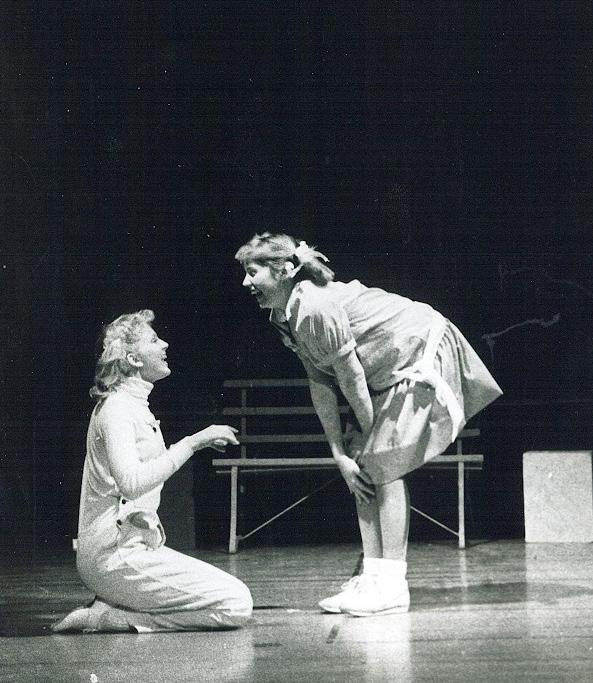
“We would use De Smet’s theater, or MoBap’s theater. We would rehearse at Westminster, and then two weeks before the show we would load the set and everything into the theater. It was wild.”
Even though the stages were small and the rehearsal process was a bit chaotic, WCA’s theater was unique from the beginning. Each set and costume piece would either be thrifted or handmade, and some are even still used to this day! These pieces brought so much character to Westminster’s productions, setting them apart from other schools around them.
When the school moved to the new campus in 2011, Westminster finally built its own 600 seat theater. Since then, the room is full each quarter with audiences who are constantly touched by the art on that stage, and many shows have even won awards at the St. Louis High School Musical Theater Awards.
It is apparent that Westminster Theater is set apart from other local programs, but this is not only because of the shows they put on. If you ask any student that has gone through the theater pro-
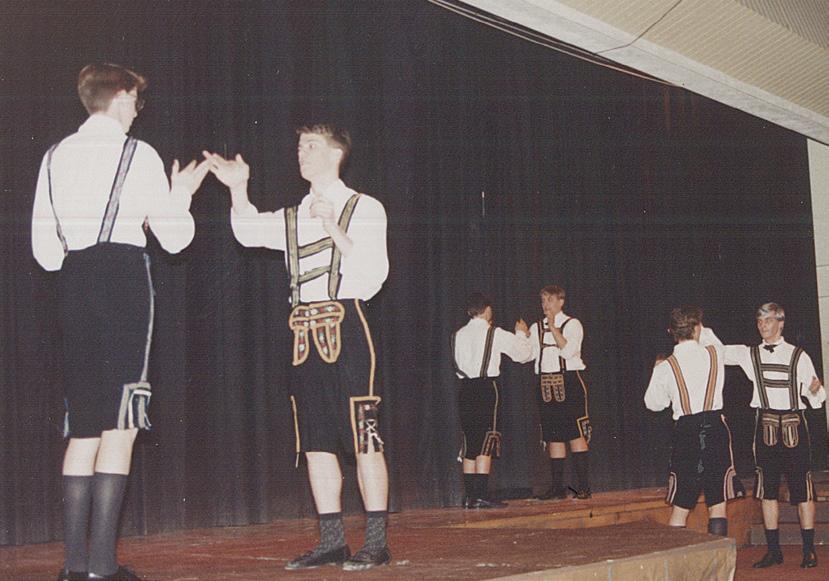
gram at WCA, they will tell you that the community found here is unmatched. Teachers and students care deeply about one another and the art they are producing. For them, it is more than just a performance.
Allen Schwamb states that “students are committed and they want to produce something that is artful and beautiful, that tells a story in a really neat way. We always try to reach something that has value.”
The students are not the only aspects of WCA theater that stand out. Over the years, Westminster has been blessed with many talented and wise teachers. They are passionate about helping their students grow to become not only better actors, but better people in general. Students are able to apply what they have learned, even long after they have graduated WCA.
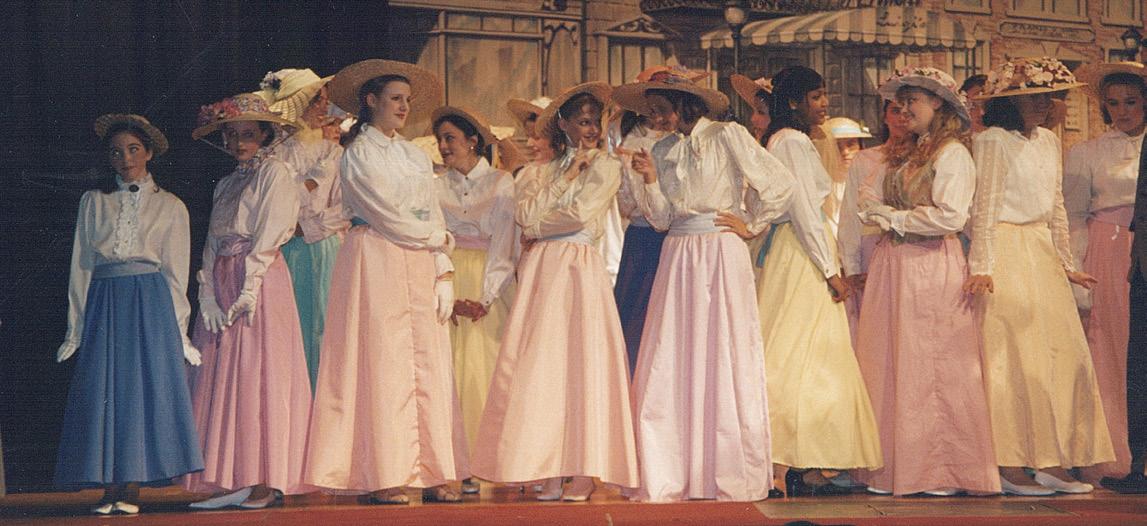
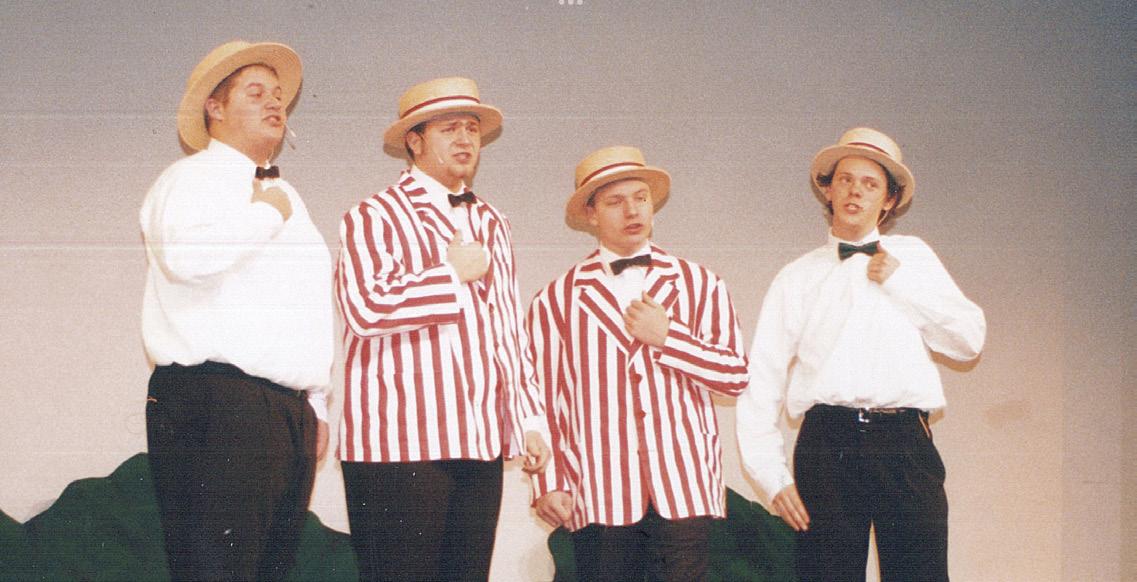
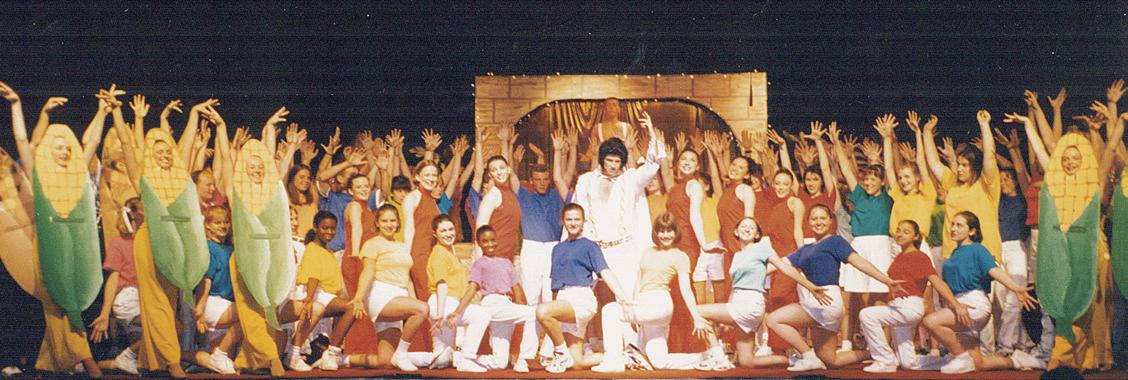
“What was most memorable for me and still is to this day is the connections I made on and off that stage,” said 2014 grad, Andrea Reed. “Ways of thinking, acting techniques and general etiquette were all ingrained in me at WCA, and continue to actively enrich my professional theatre career today.”
From a small stage in a gymnasium, to a 600 seat auditorium, Westminster has grown immensely since it first began. But in the end, Westminster theater is not just about showstopping musicals - it is about the community that comes together to create them. This program has become a place for students to grow and create something lasting with value. They have turned Westminster theater into a tradition instead of simply a performance. And as each new show begins every year, the story of WCA theater is far from over.

